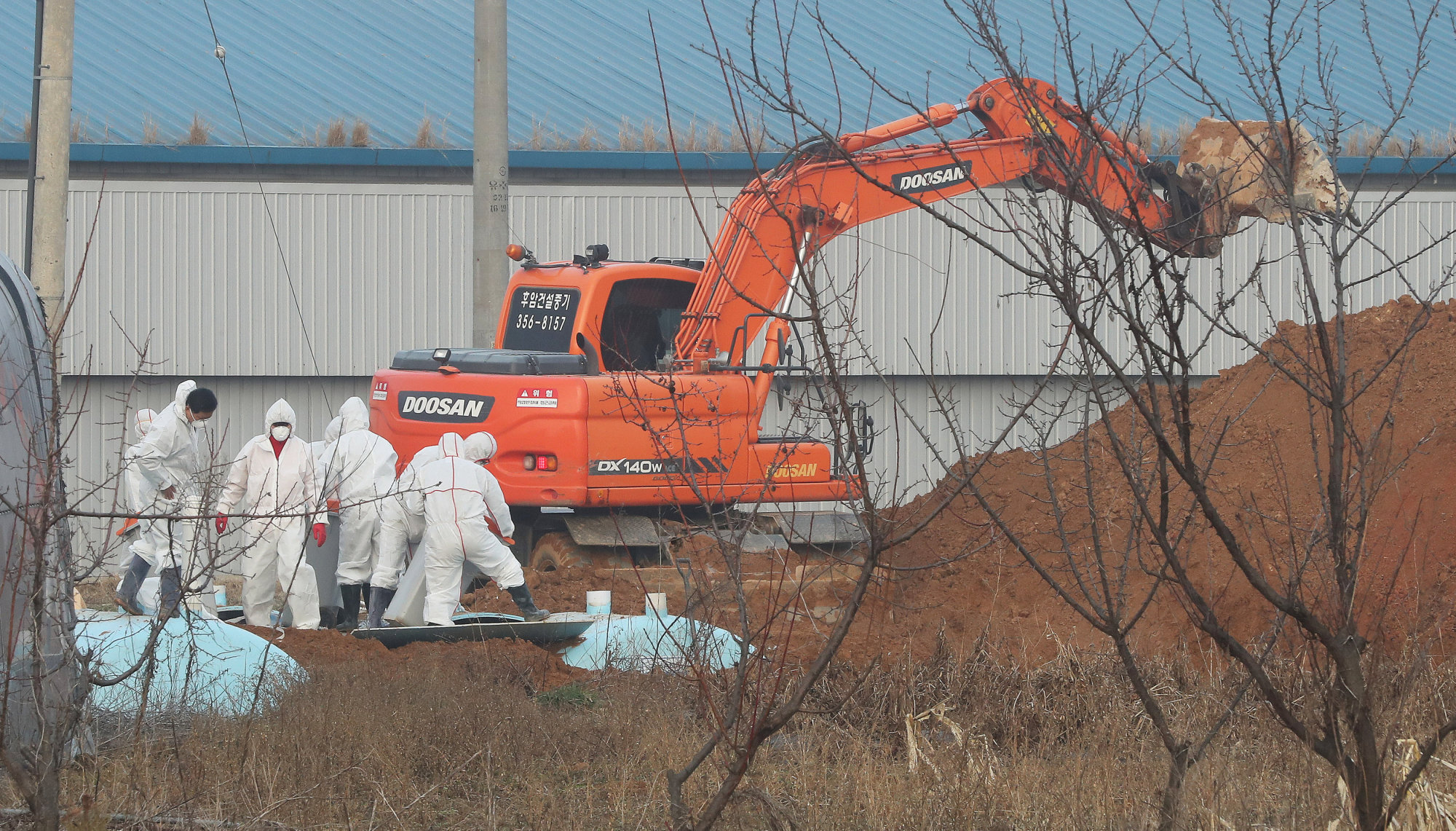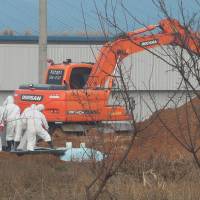South Korea has culled some 30.03 million chickens and other birds so far to contain the country's worst bird flu outbreak, officials said Tuesday, with prices of eggs skyrocketing amid a shortage of supply.
The number of poultry killed, announced by the Ministry of Agriculture, Food and Rural Affairs, is more than double that of the 14 million birds destroyed in South Korea during a 2014 outbreak.
About a third of the country's egg-laying hens, or about 22.45 million birds, have been culled, causing the production of eggs per day to drop from about 43 million to 30 million. Trading prices of eggs at farms are approximately double that of prices a year ago.
In Seoul, eggs were sold out at supermarkets, and business such as cake shops have also been affected by the shortage.
Meanwhile, in a move aimed at resolving the shortage, the country's Cabinet approved Tuesday a regulation to temporarily remove import tariffs on egg products, allowing local companies to import 98,000 tons of whole eggs and other types of egg products without tariffs between Wednesday and June 30, Yonhap News Agency reported.
The first case of the highly pathogenic H5N6 virus in South Korea was reported in late October from droppings of migratory birds and has since spread rapidly across the nation. The first outbreak at a chicken farm was reported in mid November.
Many have criticized the government for its slow response amid turmoil triggered by President Park Geun-hye's political scandal and subsequent impeachment by parliament.




